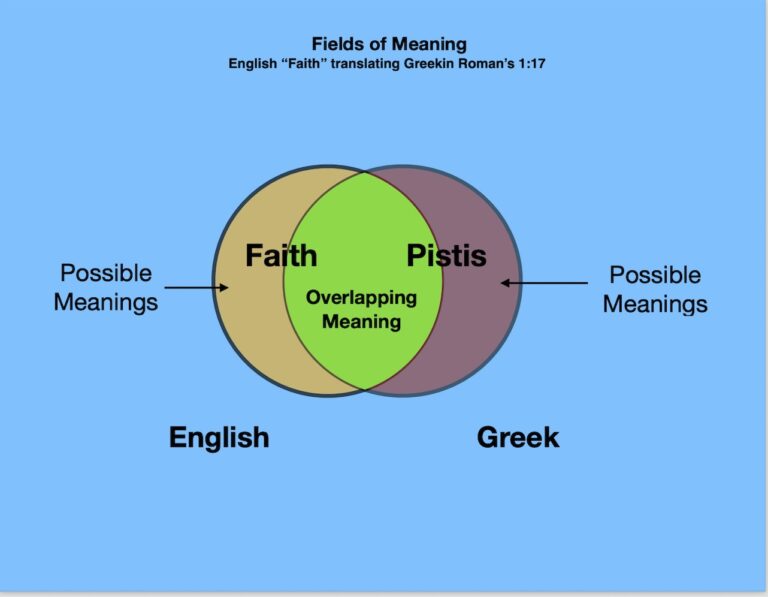Do We Really Need To Fence The Table?
by G.S. Augustine

The Holy Grail Phenomenon
In the movie Indiana Jones and the Last Crusade, Indie sets out to rescue his father who spent a lifetime searching for the fabled Holy Grail. According to legends inspired by Camelot, it was the Last Supper cup Jesus drank from, and it had the power to heal and extend life. Knights of the Round Table originally made daring quests to search for it. Many tried and failed, but two knights eventually found it. Sir Perceval was first and drank from it. He immediately died and went to heaven. Much later, Sir Galahad found it, and, in the movie at least, became its caretaker.
Locked away in a hidden cave with many treacherous traps, Sir Galahad guarded the grail. Because he was the best of the knights, he earned that honor. He would hold that guardianship in an extended life from Arthur till the 20th century. In the movie, a worthy successor had to pass all tests of the cave and then defeat Galahad in battle. But the cup was also disguised. It sat among a hundred other bejeweled cups that kings had used. If a person chose the wrong cup and drank from it, he would die. Only the cup of Jesus would bring life.
Mystique, Power and Hocus Pocus
Though I’ve found no historical writings linking this hiddenness of the grail and the practice of fencing the Communion table, it presents an interesting picture. In the fourteenth and fifteenth centuries, a belief arose that Joseph of Arimathea used the grail to collect some of Jesus’ blood. That gave it the power of life and death. Along with Thomas Aquinas who put forth the doctrine of Transubstantiation, communion took on a almost magical feel. The Eucharist became a source of life to the believer and a source of death to the sinner.
When the Priest utters the words “hoc est corpus meum” over the Eucharist and Cup, he reaches the height of mystery. This Latin phrase means “This is my body.” In Catholic theology, the bread and wine then become the body and blood of Christ. Though still outwardly bread and wine, Catholics believe its true essence is the real body of Jesus. Peasants of the middle ages held this moment in awe. But since they were unschooled in Latin, they heard the words hoc est corpus as hocus pocus. And a magic phrase was born.
Stories arose that if someone were to take the communion wafer and stick with a pin, the wafer would bleed. Powerful forces were at work, and that belief gave the church reason to place strong restrictions on the communion table. To be fair, fencing the Lord’s table already had a long history, but by then it had become the stuff of fantastical legend.
The Biblical Rationale
The Reformers of the sixteenth century repudiated the fantastical aspect of the Lord’s table. However, they held over the necessity of fencing it. The term refers to preventing non-Christians from taking communion in the church. It also excludes Christians with unconfessed sin from partaking as well. This is why Catholic Church encourages people to go to confession on Saturday to be eligible for communion on Sunday. Ostensibly, this is to protect them, but it can easily come to be a kind of lording over as well. Bible students today look to 1 Corinthians 11 as warrant.
So then, whoever eats the bread or drinks the cup of the Lord in an unworthy manner will be guilty of sinning against the body and blood of the Lord. Everyone ought to examine themselves before they eat of the bread and drink from the cup. For those who eat and drink without discerning the body of Christ eat and drink judgment on themselves. That is why many among you are weak and sick, and a number of you have fallen asleep.
I Corinthians 11:27-30
Some say, this passage teaches that if a person has not become a saved believer in Christ, he must not partake of the Lord’s Table. And in some churches, if he is not a baptized believer (usually in their denomination), he must not partake either.
Furthermore they say, churches should prevent Christians with unconfessed sin from taking the bread and cup. Most officiants of communion in Protestant churches admonish believers to “search their hearts” and confess any sin before partaking. Otherwise you might get sick and die.
Good Practice, Bad Exegesis
Though it is always a good idea to keep short accounts with God by confessing sin as soon as possible, I don’t believe this is what Paul had in mind in this passage. Also, though a logical argument can extrapolate it, applying this passage to non-believers seems to me a stretch. This passage strictly addresses believers and specifically something that believers at Corinth were doing.
When looking at the context, the reason for Paul’s disappointment with those in Corinth isn’t because they have unconfessed sin. The call to “examine” can imply this, but Paul’s focuses intently on one particular sin: division in the body of Christ. Each one (lit. man) is to examine himself as to whether his personal behavior promotes loving unity or the good ol’ boys’ network discrimination.
Body of Christ is “the Church”
Here’s where we must be careful in interpreting. The “body of Christ” can mean the “physical” body that Jesus walked around in. The bread and cup do represent Jesus physical body as the last supper passages indicate. But here it is quite obvious that Paul is thinking of the church which is the body of Christ.
Paul does say that if one partakes in an unworthy manner, he is guilty of sinning against “the body and blood of the Lord.” In this clause, he does intend for us to think of the Lord’s physical body. However, the “unworthy manner” deals only indirectly with our relationship with Christ. But it deals directly with our relationship with each other. If we treat each other in the church badly, Paul says that that behavior denigrates the Lord’s bodily sacrifice for his church.
Purpose of Communion: Oneness With the Lord and Each Other
The admonition is for us to consider the welfare of each member of Christ’s church as essential to our own. The Lord’s table is not a time for gluttony or drunkenness while poor members of the church go hungry. Several clues in the passage and surrounding chapters make the identity of the body of Christ with the church a reasonable conclusion.
First, Paul’s criticizes the congregation at Corinth because they disregarded the welfare of the poor among them. This is the context for understanding Paul’s direction that members “examine” themselves. It occurs just a few verses before that passage.
In the following directives I have no praise for you, for your meetings do more harm than good. In the first place, I hear that when you come together as a church, there are divisions among you, and to some extent I believe it. No doubt there have to be differences among you to show which of you have God’s approval. So then, when you come together, it is not the Lord’s Supper you eat, for when you are eating, some of you go ahead with your own private suppers. As a result, one person remains hungry and another gets drunk. Don’t you have homes to eat and drink in? Or do you despise the church of God by humiliating those who have nothing?
1 Corinthians 11:17-22 Emphasis mine
Additionally Paul’s concluding remarks about proper communion etiquette reinforces this conclusion.
So then, my brothers and sisters, when you gather to eat, you should all eat together.Anyone who is hungry should eat something at home, so that when you meet together it may not result in judgment.
1 Corinthians 11:33-34
And since Jesus is the head of this body, we cannot honor him without honoring the body of believers he died for.
Surrounding Chapters Emphasize the Same Thing
Also verse 29 carries the same idea, “For anyone who eats and drinks without discerning the body of Christ eats and drinks judgment on himself” (emphasis mine). Here again, the body of Christ is the church not the physical body of Jesus. Paul has already introduced this idea in the previous chapter. There, Paul does toggle back and forth between the physical body of Christ and the church. But the point is that at the Lord’s table we participate in Jesus bodily sacrifice for his church which is his body:
Is not the cup of thanksgiving for which we give thanks a participation in the blood of Christ? And is not the bread that we break a participation in the body of Christ? Because there is one loaf, we, who are many, are one body, for we all share the one loaf.
1 Corinthians 10:16-17 Emphasis mine
Division is the Concern of the Whole Letter
Unity of the body of Christ is Paul’s major concern throughout the entire letter from the very first chapter. Paul indicates that the only way for believers to live victoriously is to live in loving unity. Division is the very definition of defeat.
If any of you has a dispute with another, do you dare to take it before the ungodly for judgment instead of before the Lord’s people? … The very fact that you have lawsuits among you means you have been completely defeated already.
1 Corinthians 6:1, 7
Paul’s great concern about the practice of communion at Corinth is that it is hurting the church not just within the congregation but outside as well.
In the following directives, I have no praise for you, for your meetings do more harm than good.
1 Corinthians 11:17
This particular “sin” of division is not just the context of Paul’s directives about the Lord’s Table, but the foundational problem Christians at Corinth have in several areas (see 1:10-12; 3:1-4; 6:1-7; 8:9; 10:17; 11:17-22; 12:7-27, 13:1-13, 14:26-33). Paul has not left this focus when he tells the Corinthians to “examine” themselves. Each individual was to ask themselves, “Is my attitude here about serving God’s people or am I just here for a Frat party?” Modern celebrations of communion would not lend themselves to the practice at Corinth, but it is still possible to be guilty of these things as we will see below.
The Great Chapter On Unity of the Body
Another indication that the body of Christ is the church is subject of the next chapter. 1 Corinthians 12 is the famous discussion regarding Christians role in the church. Paul uses the workings of a physical body to describe the way the members of the church of Christ relate to each other. Here again is an emphasis on unity while at the same time recognizing the diversity of gifts among the members.
Paul says there is only one Spirit even though there are different gifts coming from him. There are different kinds of services in the body but the same Lord. Just because the members have different jobs doesn’t mean they aren’t part of the body. And just because another member doesn’t have your particular abilities doesn’t mean you can do without them. Here again, unity is the point of the whole chapter. And if we observe carefully, it is the background to every chapter in the letter.
A Mistake in Reading
Many will look to verses 31-32 to argue that it extends the command to confessing sin before partaking of the Lord’s supper. Therefore, they say, the emphasis on confessing sin before partaking is a legitimate requirement.
But if we were more discerning with regard to ourselves, we would not come under such judgment. Nevertheless, when we are judged in this way by the Lord, we are being disciplined so that we will not be finally condemned with the world.
1 Corinthians 11:32-33
When students refer this verse, many read it this way: “If we were to judge ourselves, we would not come under judgement.” This allows us to infer that Paul is speaking about confessing sin. The Greek word here (diakrino) misread “to judge” literally means “to separate thoroughly.” This connotes “distinguishing,” or even “deciding.” This is why most translations use the English word “discerning” as above.
Additionally, the word “ourselves” is plural in number and likely implies a collective. We as a “group” need to “discern” whether we are taking care of each other. Even though verse 28 uses the singular, Paul is criticizing their corporate celebration and calling them as a group to fix it.
The word in the second clause referring to “coming under judgment” is a different form (krino). It does mean “to decide” in some cases but it more often carries the law court meaning “to judge.” We find the same form in verse 34, “when we are judged this way by the Lord.”
We May Be Guilty Of It Anyway
Again, I’m not saying that confessing sin is ever inappropriate and coming to worship of any kind is a good time for it. Jesus said that if while we’re at the altar and realize we are at odds with someone, we should leave our gift and reconcile with them (Matthew 5:23-24). However, the point of 1 Corinthians 11 has more to do with order and propriety in conducting worship than in confessing sin.
However, if we combine the admonitions of 1 Corinthians 11 and Matthew 5 from above, we may see that a great deal of folks in our churches are breaking the spirit of both passages. If Paul condemned their practice because they lack loving concern for each other, are we secretly guilty of a similar divisions?
I don’t think Paul calls elders to prevent certain folks from access to the Lord’s table. I think it is a call for the church to examine whether our practice brings union or division.
What About Non-Believers? Shouldn’t Something Be Done?
But what about people who have not yet come to faith but find themselves in church? This is more tricky, though I suppose many would not think so. Obviously, the partaking of one loaf is a statement that we are one body (1 Corinthians 10:16-17). Non-believers by definition are not part of that body. So case closed right? Well, maybe not quite so fast.
The question comes down to “when is someone welcome to partake of that one loaf?” Is it when they pray a prayer? Is it when they are converted, repent, are baptized with the Holy Spirit? Theologically, one is not baptized into the body of Christ until he is baptized by the Holy Spirit. A Pentecostal could say you must speak in tongues to be eligible. But Peter is an interesting case. After participating with Jesus at the last supper (i.e. communion!), Jesus says:
Simon, Simon, Satan has asked to sift all of you as wheat. But I have prayed for you, Simon, that your faith may not fail. And when you have turned back (some translations: “converted”), strengthen your brothers.
Luke 22:31-32
About Face or U-Turn?
This of course refers to Peter’s denial of Jesus and his “conversion” afterward. Indeed, this is before the Holy Spirit came at Pentecost and baptized any of them. One might argue this was a different circumstance, which it was, I admit, but still. Peter seems to have had five different conversion experiences whereas Paul only had one. Paul makes a 180 degree about face. Peter seems to make a U-turn wide enough for the Titanic to follow. Where exactly on that U-turn is one now qualified to partake of communion?
Tax Gatherers and Sinners?
Another interesting scene to consider in the life of Jesus is the banquet at the home of Levi (Matthew) in Luke 5.
Then Levi held a great banquet for Jesus at his house, and a large crowd of tax collectors and others were eating with them. But the Pharisees and the teachers of the law who belonged to their sect complained to his disciples, “Why do you eat and drink with tax collectors and sinners?” Jesus answered them, “It is not the healthy who need a doctor, but the sick. I have not come to call the righteous, but sinners to repentance.
Luke 5:29-31
This is not the Lord’s Table of course, but it is an interesting image. Here Levi throws a “banquet” and invites a “large crowd of tax collectors and sinners” to come and eat. Both the Pharisees and Jesus thought these people unacceptable from a Old Testament point of view. Pharisees complain that Jesus “eats with sinners.” And Jesus says he has “called them” specifically because they are sinners. It’s important to note that not everybody in the town was there. Did Levi invite others who didn’t come? And did anyone come whom Levi or Jesus refused to serve?
Without Cost?
Banquets are a regular image in the gospels. Jesus instructs his listeners when they throw a banquet not to invite rich friends but the poor who cannot repay (Luke 14:12-14). He uses a great banquet as a parable for the kingdom (Matthew 22:1-14). In that image, one came dressed inappropriately. The master of the banquet throws him out which suggests the need for a right response to the king’s invitation. But it doesn’t seem to mean that he wasn’t invited. I know that that proper dress is symbolic of righteous acts of the saints. At the wedding feast of the Lamb this is emphasized (Revelation 19:8), but even we who are saved presently don’t receive that dress until then.
In fact, in the Old Testament, the only requirement for God’s banquet is hunger and thirst. Anyone with those pre-requisites can come and eat without any other cost.
Come, all you who are thirsty,
come to the waters;
and you who have no money,
come, buy and eat!
Come, buy wine and milk
without money and without cost.
Why spend money on what is not bread,
and your labor on what does not satisfy?
Listen, listen to me, and eat what is good,
and you will delight in the richest of fare.
Give ear and come to me;
listen, that you may live.
Isaiah 55:1-3
This passage specifically calls Israel to repentance, but it does fit into the section of Isaiah that foreshadows Messiah’s offer to all people. And Jesus himself echoes the above sense in the Sermon on the Mount when he says those who hunger and thirst for righteousness will be satisfied. Bread and wine here along with milk are on the table—symbolic of a rich banquet. Although the call is to “Listen” and “Give ear,” all are invited to the banquet.
The listener must seek the Lord (Isaiah 55:6). The wicked and unrighteous must forsake their ways and thoughts (Isaiah 55:7). One could argue this is true only of “born again” Christians. But could it also refer to someone honestly seeking a new path? And might that a person find themselves in church one morning because they were looking for something better?
There Are Real Requirements
There are real requirements, and I believe them to be non-negotiable. “Discerning the body of Christ” at the Lord’s table is certainly a requirement. Anyone participating without a sense of reverence for Jesus sacrifice and recognition of the loving oneness of body of Christ commanded by Jesus has no business partaking.
But I do think that anyone truly seeking can be invited to this table. I think Jesus would say to any tax collector or sinner, “You are welcome.” Although I think he might follow that invitation with “But let’s talk”–most likely as they are breaking bread and drinking wine. Those officiating should make the value of Christ’s sacrifice clear and the sacred unity of the church paramount. If a person honors these things, I think we can simply say, “You are welcome to join us.”
It is likely that many good hearted believers would disagree with me on this. The Old Testament Jew and any foreigner had to be circumcised before they could participate in Passover. And there are other theological considerations. I hold this position quite lightly and it may be that further study would change my perspective. But up to this point, as the third century bishop Origen would say, “That’s the best I can do with that. Maybe someone else will do better.”
One Last Thought: Children
One last thought. I do feel that there is one unnecessary requirement that church leaders impose on Christian families. Telling parents they should fence the table from their children isn’t helpful. And in some cases it can even be harmful. Even if the child hasn’t yet made a clear profession of faith, we should include whole families. Paul states that children of believers are sanctified by the faith of their parents. And he even says this includes unbelieving spouses.
For the unbelieving husband has been sanctified through his wife, and the unbelieving wife has been sanctified through her believing husband. Otherwise your children would be unclean, but as it is, they are holy.
1 Corinthians 7:14 Emphasis mine




